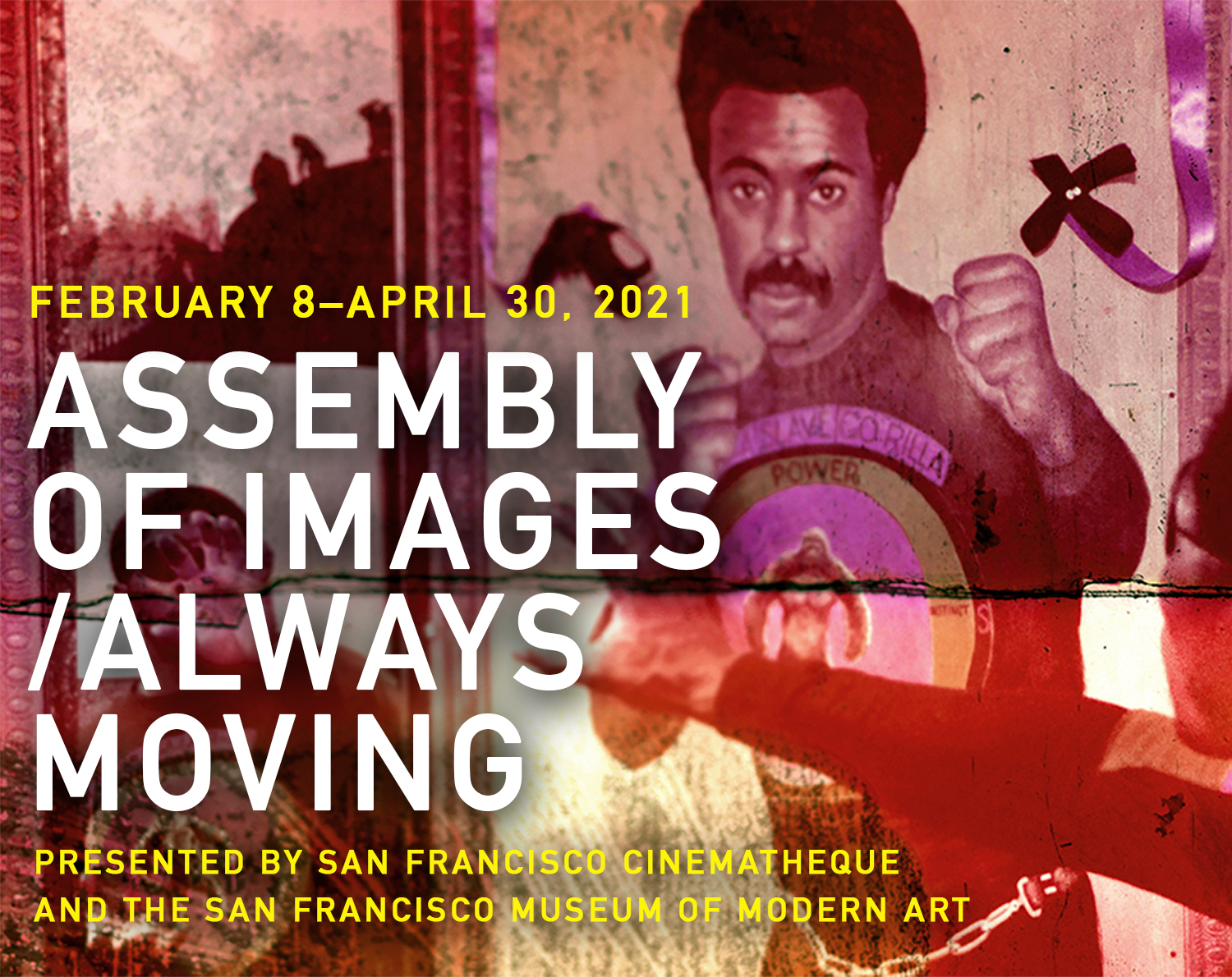
Assembly of Images: On Histories of Race and Representation is a three-month series featuring films by Edward Owens, Garrett Bradley, Crystal Z Campbell and Christopher Harris that explore and provide counterpoint to the history of race and the representation of African Americans in cinema and photographic traditions. These filmmakers’ works are steeped in memory, history and deeply personal imaginings that linger between lived realities and cinematic dreaming. Grounded in experimental formats, nonfiction impulses and independent filmmaking, these selections reframe and remix representations of joy and love, identity and perception, struggle and resilience and harness the power in claiming the narrative, mining archives and sharing histories.
Assembly of Images is curated by Gina Basso, Manager of Film Programs, San Francisco Museum of Modern Art and co-presented by San Francisco Cinematheque and SFMOMA.
Related Screening: This program is paired with Always Moving: African American Portraiture in Film, an online screening which will be available for viewing March 1–31, 2021 (with a special livestream featuring additional works on April 24, 2021. See full details and view the program here.
Program One
View this program February 8 – 28, 2021 at
www.sfmoma.org/program-one-edward-owens/
Edward Owens was a queer Black artist who worked in painting, sculpture and 8mm film at the Art Institute of Chicago in the 1960s. He settled in New York and became part of a burgeoning late 1960s underground filmmaking scene. Although not a prolific filmmaker, Owens made several experimental films, largely portraits and intimate studies of his own family and their circle. Screening includes Private Imaginings and Narrative Facts (1966) and Remembrance: A Portrait Study (1967).
full program details here
Program Two
Christopher Harris and Crystal Z Campbell
View this program March 5 – March 31, 2021 at
www.sfmoma.org/program-two-christopher-harris-and-crystal-z-campbell/
Christopher Harris’ Reckless Eyeballing (2004)—its title taken from a Jim Crow era prohibition against Black men looking at White women—imagines encounters between characters from American films such as Birth of a Nation (1915) and Foxy Brown (1974) to explore “the gaze” from an African American cinematic context.
Crystal Z Campbell’s Go-Rilla Means War (2017) derives from a decayed 35mm film discovered in the abandoned Slave Theatre, once the center of Black culture and civil rights organizing in Brooklyn. Featuring Black men in various states of martial arts training, the films faded and discolored frames are a metonym for the media demonization of Black bodies in the context of the gentrification of Bedford-Stuyvesant.
full program details here
Program Three
SCREENING CANCELED
Due to the recent delay in the official release date of Garrett Bradley’s America,
we are unable to present this title at this time.
SCREENING: America (2019) by Garrett Bradley; digital video, b&w, sound, 2019, 30 minutes
Garrett Bradley’s work addresses ideas of race, class, family, social justice, Southern culture and the history of film in the United States. America (2019) explores the legacy of silent films inspired by the recently rediscovered feature Lime Kiln Club Field Day (Bert Williams, 1913), the first known film to feature an all-Black cast. America contemplates the lost lineage of African American cinema to suggest an inclusive world where Black beauty, joy and strength are eternal.
full program details here
Related Screening
Always Moving: African American Portraiture in Film
Program online March 5 – March 31, 2021
Special livestream April 24, 2021
Always Moving: African American Portraiture in Film presents seven historical and contemporary moving image works created 1967–2019. Engaging with traditions as diverse as ‘60s New York underground filmmaking, ‘70s left coast political manifesto, portraiture, street photography and stag film, these films frame experiences of public and community life, family history and political struggle within the contexts of African American photographic traditions and countercultural expression. Throughout, the works consider the intimate lives of strangers, friends and family and reframe representations of joy and love, struggle and resilience and the simple pleasures found in the everyday.
full program details here